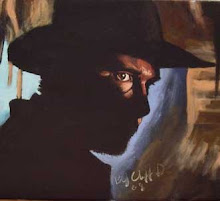
1994.
Jason Kidd.
With the second pick in the 1994 NBA Draft, the Dallas Mavericks selected California guard Jason Kidd to run their offense that featured Jimmy Jackson and Jamal Mashburn. Kidd, who signed a six-year $60 million dollar rookie contract (those were the days before the NBA collective bargaining agreement regulated rookie salaries), didn’t take long to impress as he helped the Mavs improve that year by 23 wins. By the end of his rookie year, J-Kidd averaged 11.7 points, 5.4 rebounds, 7.7 assists per contest, and led the NBA in triple doubles with 4.
Grant Hill.
Drafting third overall were the Detroit Pistons who over the last few years had seen their team fall from the NBA’s elite after winning back-to-back NBA championships in 1989 and 1990. With Duke senior forward Grant Henry Hill, one of the most decorated collegiate players of his generation, the Pistons not only had a new cornerstone (who signed to a tune of eight-years, $45 million) to build under the guidance of veteran guard Joe Dumars, but also what was to become the “face of the NBA” for the next few years. Hill’s status was never more apparent than in that year’s NBA All-Star Game wherein he became the first rookie (in any of the four major sports—Basketball, Baseball, Football, and Hockey) to be the events top vote getter. Hill finished with averages of 19.9 points, 6.4 rebounds, 5.0 assists, 1.77 steals per game. As for triple-doubles, G.Hill didn’t match Kidd’s total but was able to post one against the Orlando Magic on April 7, 1995.
With their individual accomplishments (I can’t really say “AND team accomplishments” since the Pistons only had an 8-game improvement will Hill that year), both Jason Kidd and Grant Hill were named NBA co-rookie of the year—only the second duo (until Chicago’s Elton Brand and Houston’s Steve “Franchise” Francis turned the trick in 99’-00’) to capture the award after the Celtics’ Dave Cowens and Blazers’ Geoff Petrie did it 24 years earlier.
In their own right, both Jason Kidd and Grant Hill have had successful and highly lucrative careers. Kidd is third all-time in triple-doubles (netting 100 to date), USA Basketball’s 2007 Male Athlete of the Year (going 44-0 lifetime when representing his country), and has reached the NBA Finals twice in 2001 and 2002. On the other hand, Hill had been named to numerous NBA All-Star teams (even making the squad during the 2001 season in which he only participated in four regular season games), is one of only three players (the others being Elgin Baylor and the late Wilt “The Stilt” Chamberlain) to lead his team in scoring, rebounds, and assists on at least three occasions, and is generally a nice guy (having won the NBA’s Sportsmanship Award (2004, 2008) and the Magic Johnson Award (2006)).
But in my eyes, arguably the defining point in their respective careers is the element of injury from which no player is immune.
The Good.
In March of 2000, the Phoenix Suns’ Jason Kidd broke a bone in his left ankle with 2/10th of a second left in the first half of their game against the Sacramento Kings. Surgery ensued, and five weeks later, Kidd was back on the court for the Suns’ playoff run. Four years later, Kidd had microfracture surgery on his left knee in July 1st and returned five months later without any ill effects—which says a lot because a number of players have either retired (e.g., Terrell Brandon, Allan Houston, Kerry Kittles, Karl Malone, Jamal Mashburn, Bryon Russell, guard Alvin Williams, and Chris Webber), are unemployed (e.g., Pat Garrity and Anfernee “Penny” Hardaway), not really the same anymore (e.g., Matt Harping, Kenyon Martin (procedure on both knees in successive years), Eduardo Najera), or play like they never got hurt in the first place (e.g. the aforementioned Jason Kidd, Zach Randolph, Amare Stoudemire and the retired John Stockton). (The jury is still out on Portland Trailblazer rookie Greg Oden and $111 million dollar man Gilbert "Hibachi" Arenas, so we will have to wait and see.)
The Bad.
Grant Hill. Once the poster boy for endurance (averaging 38.93 minutes a game during his first six years in the NBA), Hill’s health deteriorated after severely injuring his ankle during the 2000 playoffs while playing for the Detroit Pistons. The following year, the Orlando Magic’s new free agent acquisition had season-ending surgery to repair a broken medial malleolus (inside bone of left ankle) on Jan. 3 2001. A similar season-ending procedure was done 11 months later (Dec. 19, 2001) and the following season (2002-2003), Hill also missed a majority it before having surgery again on his bothersome left ankle which involved re-fracturing and re-aligning the ankle by re-shaping the heal on March 18, 2003.
Wikipedia.com shares that five days after the said procedure, “the unexpected happened: Hill developed a 104.5 °F (40.3 °C) fever and convulsions. He was immediately rushed to a hospital. Doctors removed the splint around his ankle and discovered that Hill had developed a staph infection, from which he nearly died. He was hospitalized for a week and had to take intravenous antibiotics for six months.”
Grant Hill then missed the entire 2003-2004 in order to rehabilitate his left ankle. Two years later, Hill’s ankle was fine but he still missed 61 games due to a sports hernia.
And the comparisons don't stop there.
Overall, I am happy that both players are currently healthy and with them being in the twilight of their careers, they may still give us a special moment.
Don’t blink.
Because it may just happen.
----------------
Now playing: Jars Of Clay - Headstrong
via FoxyTunes





No comments:
Post a Comment